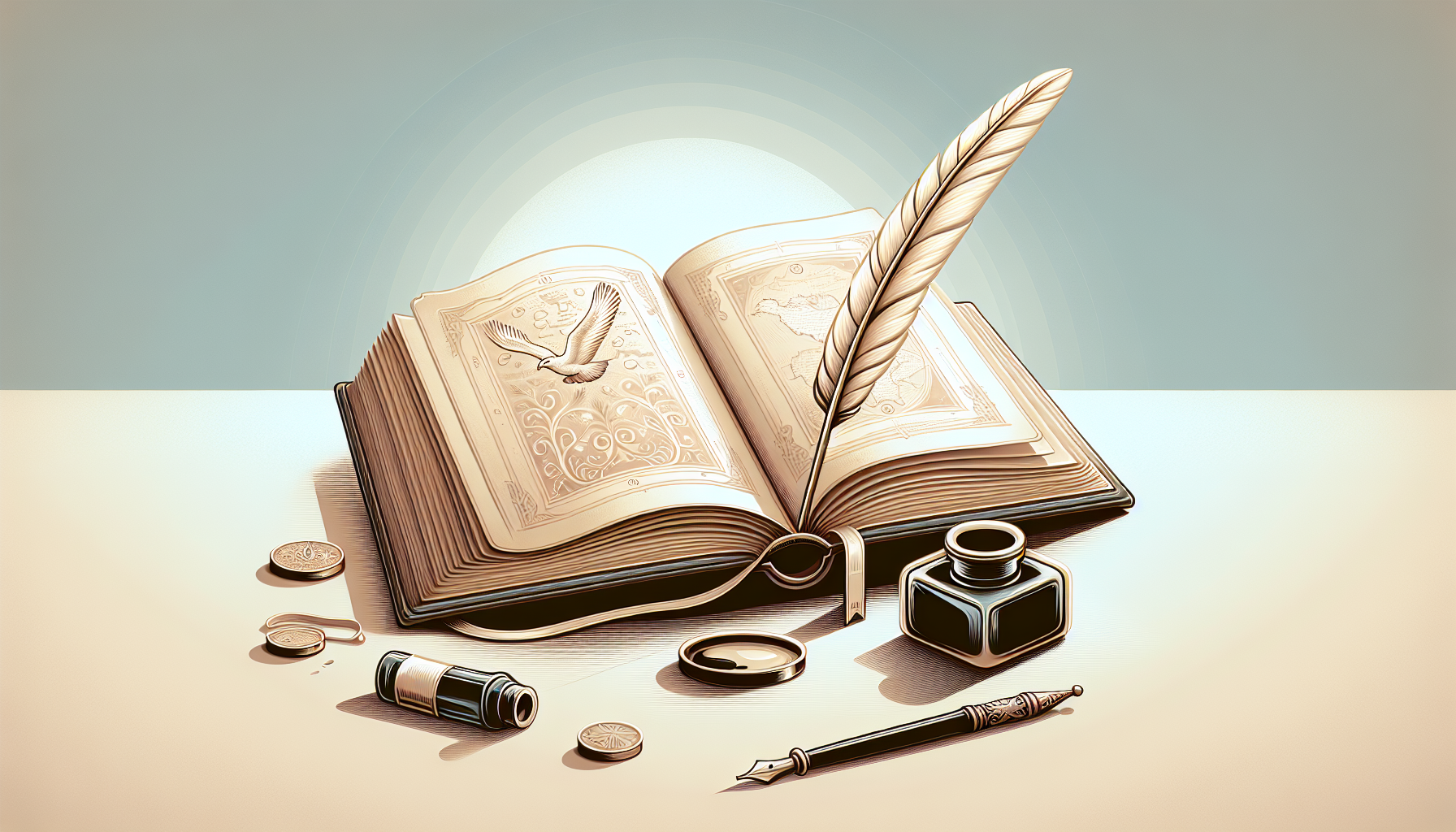If you’re diving into historical research, you might feel a bit overwhelmed by the sheer amount of information out there. It can be daunting to sift through endless documents and figure out where to start. Trust me, you’re not alone in this struggle!
But what if I told you that the right prompts could turn ChatGPT into your go-to research buddy? Stick around, and I’ll share some clever ways to use ChatGPT effectively, making your quest for historical knowledge not only easier but also a lot more fun!
From discovering key events and figures to crafting impressive essays, we’ve got a solid list of prompts lined up just for you. Let’s unlock the potential of ChatGPT in your historical exploration!
Key Takeaways
- Use specific prompts with ChatGPT to simplify your historical research and gather relevant information quickly.
- Prompts can help you explore key historical events, significant figures, and their narratives effectively.
- Analyze documents like speeches and declarations using targeted questions to extract deeper meanings.
- Create comparative analyses of historical events for enhanced understanding of their contexts and implications.
- Develop timelines and gather contextual insights using structured prompts for a clearer historical overview.
- Refine your prompts by being specific, adding context, and asking follow-up questions for better results.
- Leverage prompts for writing essays to strengthen your arguments and enhance the structure of your work.

Effective ChatGPT Prompts for Historical Research
Using ChatGPT for historical research can significantly enhance your inquiry process.
With effective prompts, you can streamline your searching and achieve better accuracy in your findings.
Here are some prompts you can copy and paste into ChatGPT to kickstart your historical research:
- “List key events and figures in the American Civil War.”
- “Provide an overview of the causes and effects of World War I.”
- “What were the historical implications of the signing of the Magna Carta?”
Utilizing these prompts helps you gather relevant information quickly and efficiently.
As you refine your inquiries, think about the specifics you’re interested in to make your prompts even more targeted.
Using ChatGPT to Find Historical Events and Figures
Finding notable historical events and figures is easier with ChatGPT.
Here are some prompts to get you started:
- “Tell me about significant events in the Civil Rights Movement.”
- “Who were the major players in the fall of the Roman Empire?”
- “Summarize the contributions of Cleopatra to Egyptian history.”
These prompts guide ChatGPT to provide specific information that can enhance your understanding of historical narratives.
Don’t hesitate to ask for details or context to enrich your findings.
Prompts for Analyzing Historical Documents
ChatGPT can assist in analyzing historical documents, making the research process more insightful.
When working with primary sources, consider using these prompts:
- “Analyze the main themes in Martin Luther King Jr.’s ‘I Have a Dream’ speech.”
- “What does the Declaration of Independence reveal about colonial attitudes?”
- “Evaluate the significance of the Emancipation Proclamation in American history.”
These prompts will help you dive deeper into historical texts and extract meaningful interpretations.
As you engage, consider asking follow-up questions for further clarification on your topic.
Generating Historical Comparative Analysis with ChatGPT
Comparative analysis of historical events can reveal unique insights, and ChatGPT can assist with this process.
Here are some effective prompts for generating a comparative analysis:
- “Compare the causes of the French and Russian Revolutions.”
- “What are the similarities and differences between the Cold War and the War on Terror?”
- “Analyze the impact of the Industrial Revolution in Britain versus the United States.”
Using these prompts, you can create rich discussions around historical contexts.
Be sure to follow up with specific questions to deepen your analysis.
If you’re interested in prompts for writing structured historical essays, check out these writing prompts for college essays.
Also, you might find it interesting to read about ChatGPT’s use in education.

Creating Timelines and Chronologies Using ChatGPT
Timelines are a fantastic way to visualize historical events, and ChatGPT can help you build them efficiently.
To create a detailed timeline, use these prompts:
- “Generate a timeline of the key events in the American Revolution.”
- “List the major milestones in the development of ancient Egypt from 3000 BC to 300 AD.”
- “Create a chronological overview of World War II, including important battles and treaties.”
These prompts guide ChatGPT to lay out events in a clear, chronological order.
Once you have your timeline, feel free to ask for more specific breakdowns, like “Explain the significance of each event listed.”
This will help add layers of understanding and context to the dates and events you’re mapping out.
Gathering Historical Context for Events with ChatGPT
Understanding the context surrounding historical events adds depth to your research.
To gather comprehensive context, consider using these prompts:
- “What social conditions contributed to the French Revolution?”
- “Explain the political landscape before the fall of the Berlin Wall.”
- “Describe the cultural influences during the Renaissance period.”
These commands will help ChatGPT provide insights into the backgrounds and factors that influenced key historical moments.
Following up with prompts like “How did these factors interact?” can deepen your understanding even further.
ChatGPT Prompts for Writing Historical Papers and Essays
When writing historical essays, having specific prompts can guide your thought process and structure.
Here are some prompts to consider:
- “Outline a paper discussing the impact of the Industrial Revolution on European society.”
- “Draft a thesis statement about women’s roles in World War II.”
- “Generate a bibliography for a research paper on the Civil Rights Movement.”
These prompts can help you structure your writing and develop your arguments clearly.
Don’t forget to ask for examples of these essays or requests like, “List common counterarguments to my thesis.”
This will not only refine your paper but also strengthen your case by anticipating opposing views.
Tips for Refining Prompts for Better Historical Research
Refining your prompts is essential for maximizing the effectiveness of your research with ChatGPT.
Here are some tips to help with that:
- Be specific: Instead of asking for “events in history,” ask for “key events in the southern migration during the 1930s.”
- Use context: Include the timeframe or region you’re interested in, like “Discuss economic factors during the Great Depression in the U.S.”
- Ask follow-up questions: After receiving an answer, request elaboration or ask about related topics for deeper insight.
Applying these refining techniques will lead to more relevant and targeted responses.
This way, you can elevate your research experience and gain a clearer understanding of your historical inquiries.

Common Mistakes to Avoid When Using ChatGPT for History
Avoiding mistakes can make your historical research with ChatGPT much more effective.
Here are some common pitfalls and how to steer clear of them:
- Not being specific with prompts: Asking vague questions often leads to vague answers.
- Skipping follow-up questions: Engaging in a deeper conversation can unveil richer insights.
- Relying solely on ChatGPT: Always cross-reference the information provided with credible sources.
- Neglecting context: Failing to include relevant context can result in incomplete or misleading responses.
- Ignoring biases: Be mindful that AI can reflect biases from its training data, which might skew historical narratives.
By keeping these mistakes in mind, you can enhance the quality of your research.
Remember, using ChatGPT effectively is about collaboration and critical thinking, not just throwing questions at it.
d
FAQs
To effectively phrase prompts, be specific about the historical topic, event, or figure. Include context, necessary details, and desired outcomes to enhance response relevance and accuracy in your research.
Avoid vague questions and assumptions about facts. Don’t overlook the need for cross-referencing information, as ChatGPT may generate inaccurate or outdated data about historical events and figures.
Yes, ChatGPT can assist in generating timelines by identifying major events and their chronological order. Be clear about the period and key details to ensure accurate timeline creation.
Refine prompts by specifying the type of analysis desired, such as thematic, comparative, or document-based. Use clear language and context to guide ChatGPT toward more insightful and detailed analyses.
